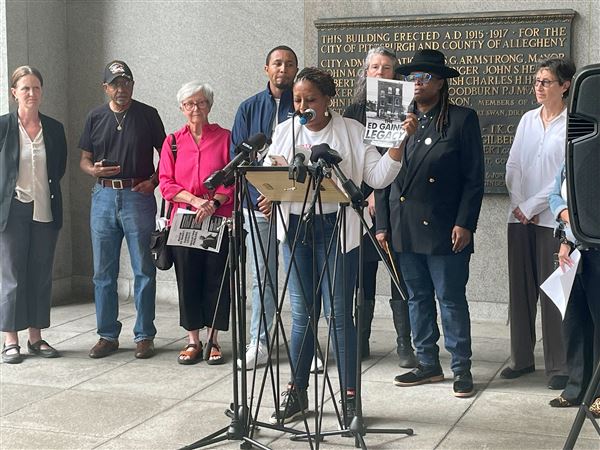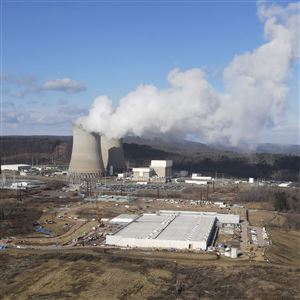HARRISBURG — Gov. Josh Shapiro on Tuesday said he reached an agreement in his complaint against the organization that manages the power grid in Pennsylvania and 12 other states, even as the state’s top utility regulator predicted “spikes” in the cost of electricity.
The regulator, Public Utility Commission Chairman Stephen DeFrank, told senators at a legislative hearing that because of closing power plants and surging needs for electricity — driven in part by new data centers and creation of AI — a “regular supply-and-demand argument” on prices is emerging.
“We are going to start seeing spikes in the commodity,” Mr. DeFrank said, adding that was not referring to distribution but to the “price of power.”
Energy production and electricity costs are top-tier issues as lawmakers delve into a new legislative session and Mr. Shapiro prepares for his 2025-26 budget address, scheduled for next week. Multiple ideas for new laws are being talked about. Those include creation of a fund to incentivize power plant building; increasing utility bill assistance for low-income consumers; and creation of an independent energy office.
The governor, a Democrat, must work with a Legislature where Republicans control the Senate. Hence, any bills intended to change the situation with electricity prices will need bipartisan support.
About a month ago, Mr. Shapiro filed a federal complaint against PJM Interconnection, claiming its practices would cost consumers billions of dollars.
In a news release issued Tuesday morning, Mr. Shapiro said his administration and PJM have “agreed to a path forward for the complaint.” A short time later, PJM responded to a request for comment with a notice it sent to stakeholders, also telling of agreeing on “a path forward for the complaint.”
The organization runs “capacity auctions” that are an integral part of the electricity-providing process in the 13-state region. Mr. Shapiro said he worked with PJM to get them to significantly lower the capacity auction price, thus “averting a runaway auction price that would have unnecessarily increased energy bills.”
“When PJM’s next auction was set to result in historic price hikes, I filed a lawsuit to stop this price hike on consumers and defend Pennsylvanians,” Mr. Shapiro said. “PJM did the right thing by listening to my concerns and coming to the table to find a path forward that will save Pennsylvanians billions of dollars on their electricity bills.”
In its notice to stakeholders, PJM said the two parties agree to a “cap” and a “floor” for prices in upcoming capacity auctions. PJM said it would make a filing on the arrangement with the Federal Energy Regulatory Commission, where Mr. Shapiro filed his complaint.
PJM said the governors of four other states — Maryland, Delaware, Illinois, and New Jersey — supported Mr. Shapiro’s complaint. PJM also said it must consult on the arrangement with entities that include its Transmission Owners and Members Committee.
The announcement of the agreement was distributed by Mr. Shapiro’s office Tuesday morning. Around the same time, the Senate Consumer Protection & Professional Licensure Committee was hearing testimony on costs that make up a consumer’s electric bill. Committee Chairman Sen. Pat Stefano, R-Fayette, said there would be more hearings.
Mr. DeFrank, the PUC chairman, testified that for 20 years the growth of “load” in the electrical grid had been stagnant.
“Now, all of a sudden, we are seeing a spike in load growth,” Mr. DeFrank said. “A lot of that is driven by data center proliferation and the fight for AI and how to be competitive in a world AI market.”
First Published: January 28, 2025, 5:25 p.m.
Updated: January 29, 2025, 5:32 p.m.




















